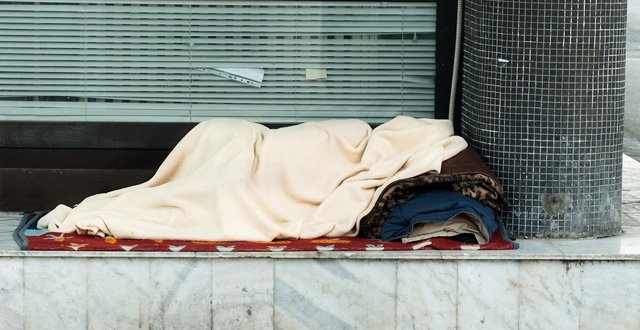Over 80 people died in Ireland in 2019 who were homeless, according to a new Health Research Board (HRB) study.
The study found 84 deaths among people who were homeless in 2019. The median age of death was 40 years. The majority of deaths were due to drug poisoning. Other causes of death were trauma and medical. 68 of those who died were male, and 16 were female. 32 cases had a known history of mental health issues.
According to the report, the highest proportion of deaths (40.5 per cent) occurred in a public place, public building, or derelict building, with a further 32.1 per cent dying in emergency homeless accommodation. Eighteen (21.4 per cent) people who died appeared to be rough sleepers, with a further 40 (47.6 per cent) known to be accessing crisis homeless accommodation.
“Almost two fifths (38.1 per cent) of the overall group had a mental health issue, notably higher among women (75 per cent),” the report stated. “Women were proportionally more likely than men to have a mood disorder and have a history of a previous suicide attempt.”
“A high proportion of the deceased were in contact with any medical services (39.3 per cent), the majority (69.7 per cent) of whom were in receipt of substance use treatment within the month preceding death. More women (62.5 per cent) than men (33.8 per cent) were in contact with health services.”
There were 46 poisoning deaths in total, 37 (80.4 per cent) among men and nine (19.6 per cent) among women. The most common drug group implicated in poisoning deaths were opioids, followed by benzodiazepines and Z-drugs. Pregabalin was implicated in less than five poisoning deaths.
The Department of Health said the report was commissioned “in order to improve understanding of premature mortality among people who are homeless and to inform healthcare policy and services for this cohort”.
The study used 2019 mortality data among people known to be homeless from closed files in the Coroners’ Service.
Dr Ena Lynn, Senior Researcher at the HRB and lead author of the report, said “two important insights from this data are the role of substance use and the high levels of mental health and medical issues among those who died, showing that this is a vulnerable population with complex needs”.
“There is no one single solution to these challenges, but our findings can help shape holistic responses across healthcare services: for example, strengthening mental health supports; enhancing harm reduction strategies related to the provision of first aid, which would include provision and administering of naloxone; and addressing barriers to access and retention in treatment services.”
According to HRB Chief Executive Dr Mairead O’Driscoll, “both in Ireland and internationally, there is a lack of robust research in relation to deaths among people who are homeless.”
“By collating and analysing this data on a national basis, the Health Research Board can help improve understanding of how and why these deaths occurred. This evidence can be used to inform policy and develop harm reduction strategies to support and protect those currently living with homelessness.”
According to the Department “since this data was recorded, there have been extensive advancements in healthcare services for people who are homeless”.
“A funding boost of €26 million was provided in addition to the recurring fund of €40 million in supports for people addicted to drugs between 2021 and 2023. This has allowed the Department…and the HSE to put in place a number of public health measures since Covid-19 to improve health outcomes for people who experience homelessness.”
These developments included the appointment of a homeless deaths coordinator and establishment of an oversight committee led by Dr Austin O’Carroll.
A follow-up study is underway based on 2020 data on deaths among people who are homeless.













Leave a Reply
You must be logged in to post a comment.